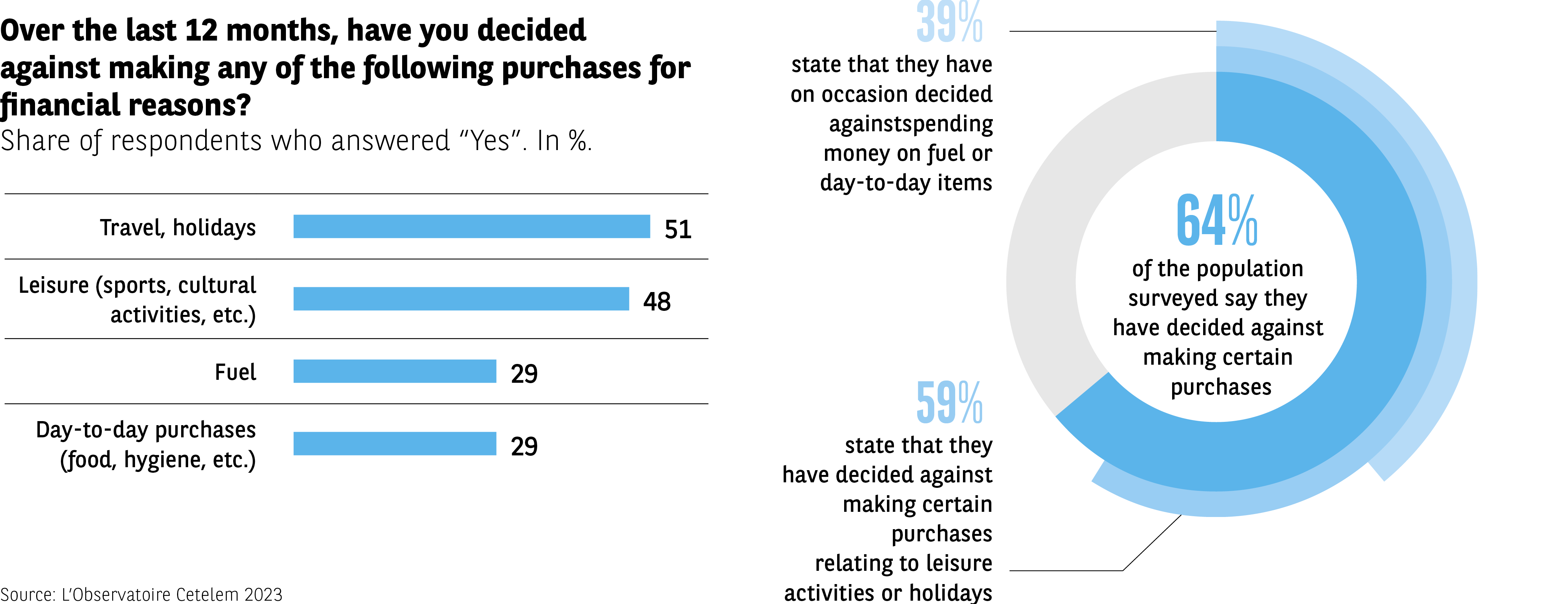Foreword


The latest Cetelem Barometer, which was published at the start of the year, pointed to the “inevitability of inflation”, to quote one of the titles of the survey, and to the consequences European consumers were predicting last year.
The aim of the report was no longer to predict its magnitude, but rather to assess the impact of an economic phenomenon which, for the preceding 40 years, was thought to have been eradicated for good.
Through this recent Barometer, Europeans voiced their feelings about their purchasing power, which more than half of respondents felt had fallen. This sense was particularly strong in the Northern and Western European countries. In this turbulent economic climate, consumption was holding firm, while saving had fallen into decline, having risen in popularity during the public health crisis.
As for the consequences of rising inflation, this latest survey highlights the increased fragility of consumption, due to individuals having to make certain trade-offs.
64% of respondents said they had decided against making certain purchases over the last 12 months. While these decisions were mainly to the detriment of travel, holidays and leisure activities (6 out of 10 respondents), expenses that people feel they can live without, nearly 4 out of 10 Europeans also refrained from purchasing day-to-day items or fuel, which are generally deemed essential (Fig. 1).
Fig 1 – Renunciation of expenses for financial reasons
Download this infographic for your presentations The infographic indicates the percentage of respondents who have renounced different types of expenses in the last 12 months due to a lack of financial means. The percentages correspond to “Yes” responses.
Data from horizontal bars:
Travel and vacations: 51%
Leisure activities (sports, culture, etc.): 48%
Fuel: 29%
Daily expenses (food, hygiene, etc.): 29%
Additional data:
64% of respondents declare having renounced at least one expense.
59% indicate a renunciation related to leisure or vacations.
39% indicate a renunciation related to fuel or daily expenses.
The renunciations mainly concern travel and leisure, while essential expenses or those related to fuel are less often mentioned.
Source: Cetelem Observatory 2023
The infographic indicates the percentage of respondents who have renounced different types of expenses in the last 12 months due to a lack of financial means. The percentages correspond to “Yes” responses.
Data from horizontal bars:
Travel and vacations: 51%
Leisure activities (sports, culture, etc.): 48%
Fuel: 29%
Daily expenses (food, hygiene, etc.): 29%
Additional data:
64% of respondents declare having renounced at least one expense.
59% indicate a renunciation related to leisure or vacations.
39% indicate a renunciation related to fuel or daily expenses.
The renunciations mainly concern travel and leisure, while essential expenses or those related to fuel are less often mentioned.
Source: Cetelem Observatory 2023
Mentioning inflation and a reluctance to consume in the same breath naturally raises the issue of price which, in these tough economic times, has become more crucial than ever. And consumers inevitably want prices to be as low as possible. The low-cost concept is a double-edged sword that is both universally appealing and a necessity for many.
